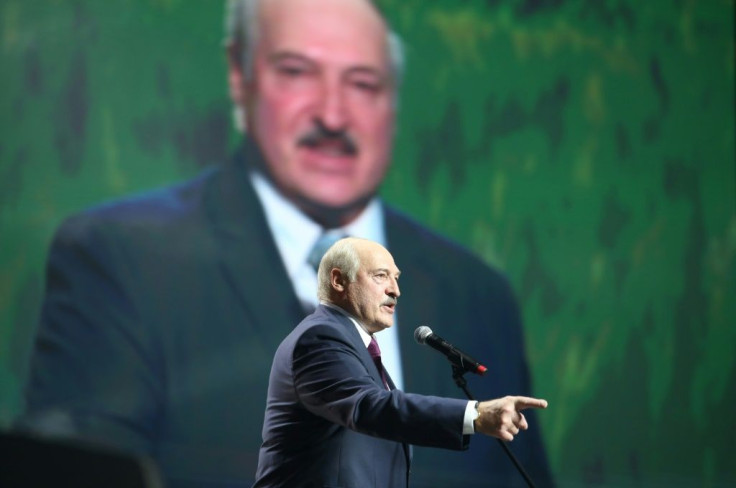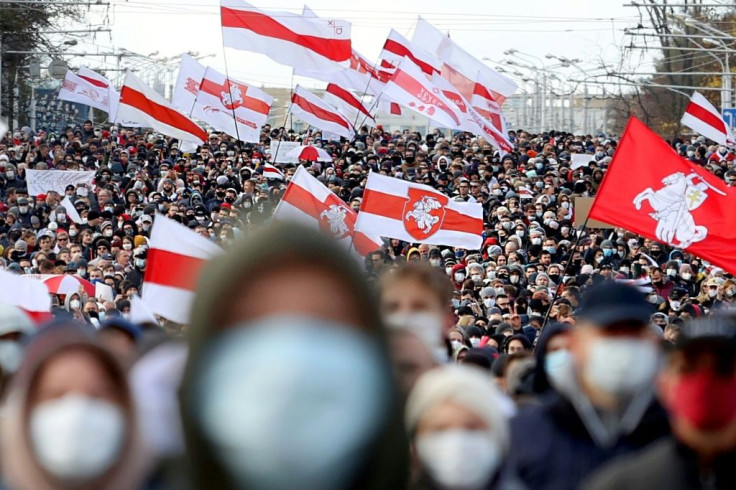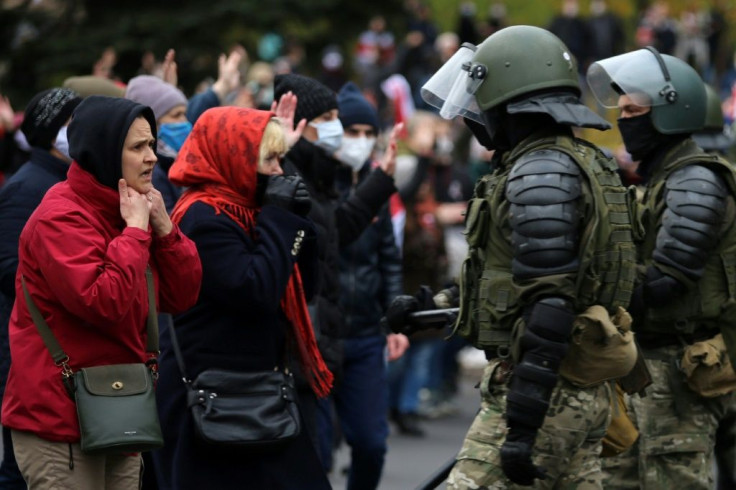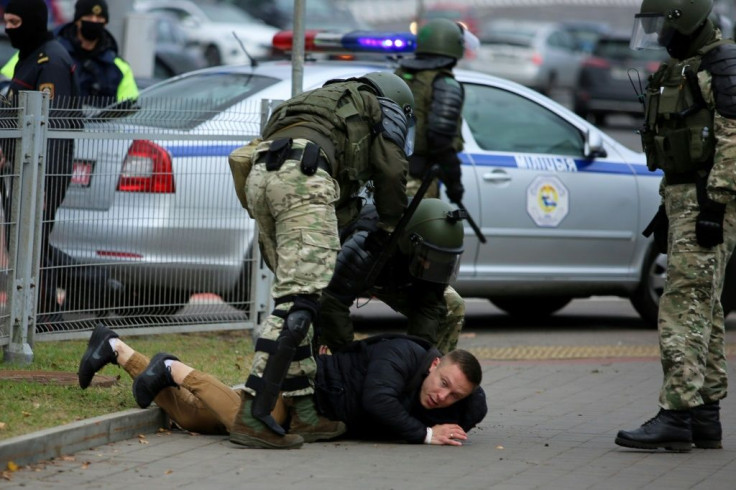Strongman Tells Loyalists Belarus Beat Foreign 'Blitzkrieg'
Belarus strongman Alexander Lukashenko said Thursday his country had defeated foreign attempts to overthrow his government and showed no signs of heeding the embattled opposition's calls for him to resign.
In a defiant address to loyalists, Europe's longest serving leader pushed back a timeline to introduce constitutional reforms that he had promised in the wake of mass protests against his decades-long rule that erupted last summer.
During the wave of demonstrations Lukashenko, 66, claimed the protesters had been incited by foreign governments to orchestrate his ouster, but on Thursday he said Belarus had successfully fended off the attacks.

"The blitzkrieg did not succeed. We held on to our country," Lukashenko said, using language especially resonant in a country that suffered huge losses at the hands of Nazi forces in World War II.
"Despite the tensions in society artificially created by external forces, we survived," Lukashenko told hundreds of delegates on the first day of the All-Belarusian People's Assembly.
"We have to resist at all costs. And 2021, this year, will be decisive."

Belarus's opposition, whose leaders including Svetlana Tikhanovskaya and Maria Kolesnikova have either been jailed or forced into exile in neighbouring EU countries, dismissed the assembly as a piece of political theatre.
The protests that broke out in August were the most serious threat to Lukashenko's rule since coming to power in the ex-Soviet country in 1994.
Tens of thousands took the streets across the country to demand his resignation after he claimed to have won a sixth presidential term in an August vote opponents said were rigged.
The authorities unleashed a violent crackdown on protesters, detaining thousands, many of whom reported torture and abuse in custody. Several people died in the unrest.

In Germany, one of the countries that did not recognise Lukashenko's reelection, the government said Thursday that it would take in up to 50 politically persecuted Belarusians and their families "as soon as possible" in a response to a parliamentary question seen by AFP.
Lukashenko had in November promised to change the constitution to calm the protests, just weeks after he was shown during a demonstration brandishing a Kalashnikov assault rifle and referring to protesters as "rats."
Lukashenko reiterated Thursday authorities would draft a new constitution this year and put the changes to a popular vote in the beginning of 2021.

But that timeline contradicts his previous promises to dilute presidential powers and hold a nationwide vote by August.
"I understand that we are living in a transitional period, we need a new generation to come to power," Lukashenko said.
Yet Europe's longest serving leader said he would only be willing to stand down when authorities had ensured stability.
"My main condition for leaving power is that there is peace and order in the country -- no protests, no attempts to overthrow the authorities".
On the eve of the assembly, the Nexta Telegram channel, which mobilised and coordinated demonstrators over the six months of rallies, called for fresh protests.
"This is a gathering of unfortunate Lukashenko supporters who were rounded up for one purpose -- to amuse the pride of one person," Nexta wrote, encouraging residents of the capital Minsk to take to the streets.
Police promised to suppress any illegal activities and warned of potential road closures in Minsk, officially due to expected heavy snowfall.
Lukashenko held constitutional referendums in 1996 and 2004, both times pushing through changes that strengthened the presidency.
Critics say that the All-Belarusian People's Assembly is typically convened by Lukashenko during his presidential campaigns to give his candidacy a semblance of popular support.
But he opted last year to instead visit police and military units ahead of the vote.
The European Union slapped sanctions on Lukashenko and his allies and EU diplomats met in Minsk on Sunday with the relatives of the Belarusians who died during the protests.
In comments to AFP, Foreign Minister Gabrielius Landsbergis of EU member Lithuania, which has sheltered exiled opposition leader Tikhanovskaya and several hundred other activists, dismissed the assembly as an "attempt to imitate dialogue".
© Copyright AFP 2024. All rights reserved.





















